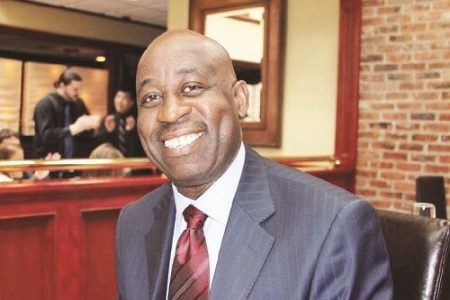 15 November 2012, HOUSTON/WASHINGTON (Reuters) – BP Plc is expected to pay a record U.S. criminal penalty and plead guilty to criminal misconduct in the 2010 Deepwater Horizon disaster through a plea deal reached with the Department of Justice (DoJ) that may be announced as soon as Thursday, according to sources familiar with discussions.
15 November 2012, HOUSTON/WASHINGTON (Reuters) – BP Plc is expected to pay a record U.S. criminal penalty and plead guilty to criminal misconduct in the 2010 Deepwater Horizon disaster through a plea deal reached with the Department of Justice (DoJ) that may be announced as soon as Thursday, according to sources familiar with discussions.
Three sources, who spoke to Reuters on condition of anonymity, said BP would plead guilty in exchange for a waiver of future prosecution on the charges.
BP confirmed it was in “advanced discussions” with the DoJ and the Securities & Exchange Commission (SEC).
The talks were about “proposed resolutions of all U.S. federal government criminal and SEC claims against BP in connection with the Deepwater Horizon incident,” it said in a statement on Thursday, but added that no final agreements had been reached.
The discussion do not cover federal civil claims, both BP and the sources said.
London-based oil giant BP has been locked in months-long negotiations with the U.S. government and Gulf Coast states to settle billions of dollars of potential civil and criminal liability claims resulting from the April 20, 2010, explosion aboard the Deepwater Horizon rig.
The sources did not disclose the amount of BP’s payment, but one said it would be the largest criminal penalty in U.S. history. That record is now held by Pfizer Inc, which paid a $1.3 billion fine in 2009 for marketing fraud related to its Bextra pain medicine.
The DoJ declined to comment.
The deal could resolve a significant share of the liability that BP faces after the explosion killed 11 workers and fouled the shorelines of four Gulf Coast states in the worst offshore spill in U.S. history. BP, which saw its market value plummet and replaced its CEO in the aftermath of the spill, still faces economic and environmental damage claims sought by U.S. Gulf Coast states and other private plaintiffs.
The fine would far outstrip BP’s last major settlement with the DoJ in 2007, when it payed about $373 million to resolve three separate probes into a deadly 2005 Texas refinery explosion, an Alaska oil pipeline leak and fraud for conspiring to corner the U.S. propane market.
The massive settlement, which comes a week after the U.S. presidential election, could ignite a debate in Congress about how funds would be shared with Gulf Coast states, depending on how the deal is structured. Congress passed a law last year that would earmark 80 percent of BP penalties paid under the Clean Water Act to the spill-hit states of Louisiana, Mississippi, Alabama, Florida and Texas.
POTENTIAL LIABILITY
In an August filing, the DoJ said “reckless management” of the Macondo well “constituted gross negligence and willful misconduct” which it intended to prove at a civil trial set to begin in New Orleans in February 2013. The U.S. government has not yet filed any criminal charges in the case.
Given that the deal will not resolve any civil charges brought by the Justice Department, it is also unclear how large a financial penalty BP might pay to resolve the charges, or other punishments that BP might face.
Negligence is a central issue to BP’s potential liability. A gross negligence finding could nearly quadruple the civil damages owed by BP under the Clean Water Act to $21 billion in a straight-line calculation.
Still unresolved is potential liability faced by Swiss-based Transocean Ltd, owner of the Deepwater Horizon vessel, and Halliburton Co, which provided cementing work on the well that U.S. investigators say was flawed. Both companies were not immediately available for comment.
According to the Justice Department, errors made by BP and Transocean in deciphering a pressure test of the Macondo well are a clear indication of gross negligence.
“That such a simple, yet fundamental and safety-critical test could have been so stunningly, blindingly botched in so many ways, by so many people, demonstrates gross negligence,” the government said in its August filing.
Transocean in September disclosed it is in discussions with the Justice Department to pay $1.5 billion to resolve civil and criminal claims.
The mile-deep Macondo well spewed 4.9 million barrels of oil into the Gulf of Mexico over a period of 87 days. The torrent fouled shorelines from Texas to Florida and eclipsed in severity the 1989 Exxon Valdez spill in Alaska.
BP has already announced an uncapped class-action settlement with private plaintiffs that the company estimates will cost $7.8 billion to resolve litigation brought by over 100,000 individuals and businesses claiming economic and medical damages from the spill.
(Additional reporting by Andrew Callus in London; Editing by Edward Tobin and David Stamp)



